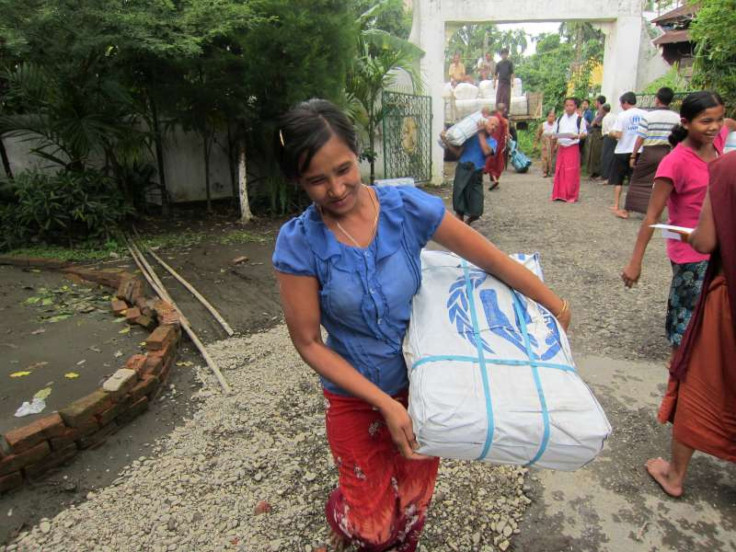More Than 75,000 People Still Displaced In Myanmar: UNHCR

People in the Rakhine State in western Myanmar, formerly known as Burma, are still being internally displaced at an alarmingly high rate, the U.N. High Commission on Refugees said on Friday, following a series of sectarian clashes in June whose cause was unclear. The riots are now still ongoing. As of August, 88 people have died, and more than 75,000 people are now living in camps and in need of aid, UNHCR said.
The figure of 75,000 is a steep increase from what the government initially estimated. UNCHR is currently distributing enough relief supplies for 54,000 people living in camps.
"Many more people are believed to have been indirectly affected by the violence," said UNHCR spokesman Adrian Edwards in a statement.
These supplies include plastic sheets, sleeping mats, blankets, mosquito nets and kitchen sets, UNCHR said.
Rakhine is home to almost 4 million people, with a large Muslim minority, the Rohingya, who the U.N. says are one of the most persecuted minorities in the world.
The UNCHR also said restrictions on movement within Rakhine prevents some villagers from going to work and obtaining food and health resources. Out of desperation, the statement said, people are leaving villages to seek food and medical assistance at the camps.
The U.S. and EU initially praised the Myanmar government’s swift response to the June violence when they declared a state of emergency in Rakhine, sent in security forces and imposed a curfew, Reuters said. The EU said it was “satisfied” with President Thein Sein’s “measured” response.
“We believe that the security forces are handling this difficult intercommunal violence in an appropriate way," said spokeswoman Maja Kocijanic to Reuters.
"This is something we would not have seen in the past. The government is trying to help everybody who needs it whether that is Rakhine Buddhists or Muslims," Michael Thurston, the U.S. embassy's charge d'affaires in Myanmar at the time.
But Myanmar drew criticism at the time from aid workers at Amnesty International and Human Rights Watch who said that 1,500 people had been illegally detained and that the refugee camps were like “open air prisons,” the Guardian said.
Aid groups are attempting to step up support. And on Friday, U.S. President Barack Obama signed a bill that will provide flexibility to support assistance by the International Financial Institutions to Burma. Deputy Treasury Secretary Neal Wolin welcomed the bill, saying in a statement, “This will support inclusive development in Burma and help reintegrate the country into the international economic community.”
© Copyright IBTimes 2024. All rights reserved.












